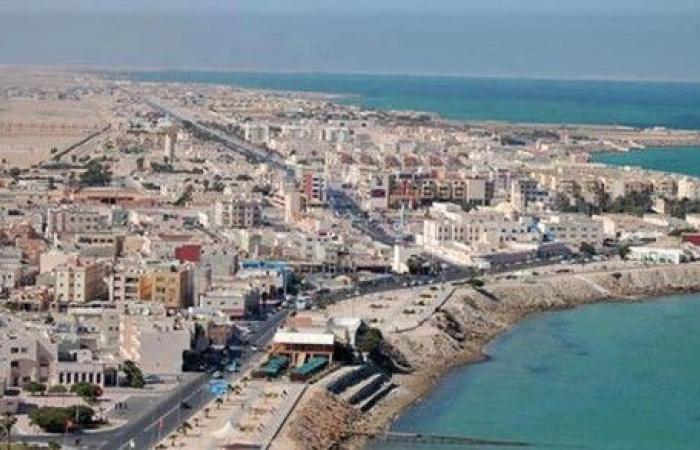Morocco is increasingly asserting itself as a strategic player in international trade, in particular thanks to the signing of free trade agreements which include the southern provinces of the Kingdom. This integration indirectly strengthens the recognition of their Moroccanness by partner countries.
Recently, the Eurasian Economic Union, made up of Russia, Belarus, Armenia, Kazakhstan and Kyrgyzstan, expressed interest in a free trade agreement with Morocco. This initiative is part of a strategy aimed at diversifying economic partnerships and strengthening trade with emerging economies. Similar agreements have already been concluded with countries such as China, Vietnam, and Singapore.
Read also | The AFD group will now invest in the Moroccan Sahara
The inclusion of the southern provinces in such agreements offers Morocco a unique opportunity to consolidate its position on the international scene. Indeed, when these provinces are part of the economic framework of bilateral or multilateral trade, this amounts to an implicit recognition of Moroccan sovereignty over the Sahara.
A strengthened economic strategy
Morocco, with its existing trade agreements with major economic blocs such as the United States and the European Union, has shown its ability to take advantage of the opportunities offered by these partnerships. The Kingdom’s integration into new blocs, such as the Eurasian Economic Union, could open more markets for Moroccan products, particularly in the phosphates, agricultural products and fisheries sectors.
Read also | The Moroccan Said family lands a mega-contract worth nearly 2 billion DH per year in Nouakchott
Furthermore, these agreements are not limited to economic benefits. They also represent a diplomatic opportunity for Morocco, which uses these partnerships to consolidate its bilateral relations while asserting the Moroccanness of the Sahara on the international stage. Each economic partnership is therefore a strategic tool to anchor this reality.
A key geopolitical positioning
-Morocco’s strategic geographic position, at the crossroads of Europe, Africa and global maritime routes, also plays a central role. This positioning makes it an essential partner for economies like Russia, which seeks to strengthen its presence in Africa. Morocco, thanks to its modern infrastructure, notably its ports and logistics corridors, constitutes an ideal gateway to the African market.
Read also | Sahara. The economy: secret weapon
Furthermore, the evolution of trade relations with blocs like the Eurasian Economic Union can help diversify Morocco’s partners, thus reducing its dependence on certain traditional markets while strengthening its economic and political attractiveness.
For a cautious approach
Despite the potential advantages, Morocco, based on previous experiences, will approach these negotiations with caution. Previous agreements have sometimes generated imbalances, to the detriment of the national economy. It is essential that new agreements be developed from a “win-win” perspective, ensuring that the country’s economic interests are fully preserved.
Read also | Why Mauritania will eventually join Morocco
This means that in this context the economy stands out as a major diplomatic lever for Morocco in the question of its southern territories. The integration of the southern provinces into trade agreements contributes to advancing the international recognition of the Moroccan nature of the Sahara, which has reached cruising speed in recent months. This, while strengthening the economic and geopolitical position of the Kingdom.
In figures, the most important current investments in southern Morocco:
- Green Hydrogen Project (Dahamco) : 25 billion USD. Renewable energy targets: 52% by 2030.
- Port of Dakhla Atlantique: Total planned investment of 10 billion dirhams (MAD). Includes a commercial terminal, a deep-sea fishing port, and an industrial-logistics zone 1 650 hectares.
- Global Renewable Energy (EnR): 22 billion dirhams (MAD) invested to achieve 52% of the energy mix here 2030. 3,5 GW of installed capacity, with additional investments of 21 billion dirhams between 2023 et 2027.
- Xlinks Project: Combined solar and wind power generation 10,5 GWassociated with a storage system 20 GWh. Investment of $10.2 million by GE Vernova and $14.1 million par Africa Corporation Finance.
- Agro-industrial complex in Dakhla-Laâyoune: Overall investment of 235 million dirhams (MAD).
- Moroccan groups in the agro-industry: Holmarcom Group : Investment of 60 million dirhams (MAD) via the subsidiaries Les Eaux Minérales d’Oulmès and the Société Marocaine du Thé et du Sucre (Somathes).
- Education and professional training: 5,000 jobs created in the renewable energy sector. Specialized training for local students, particularly in energy installations.






